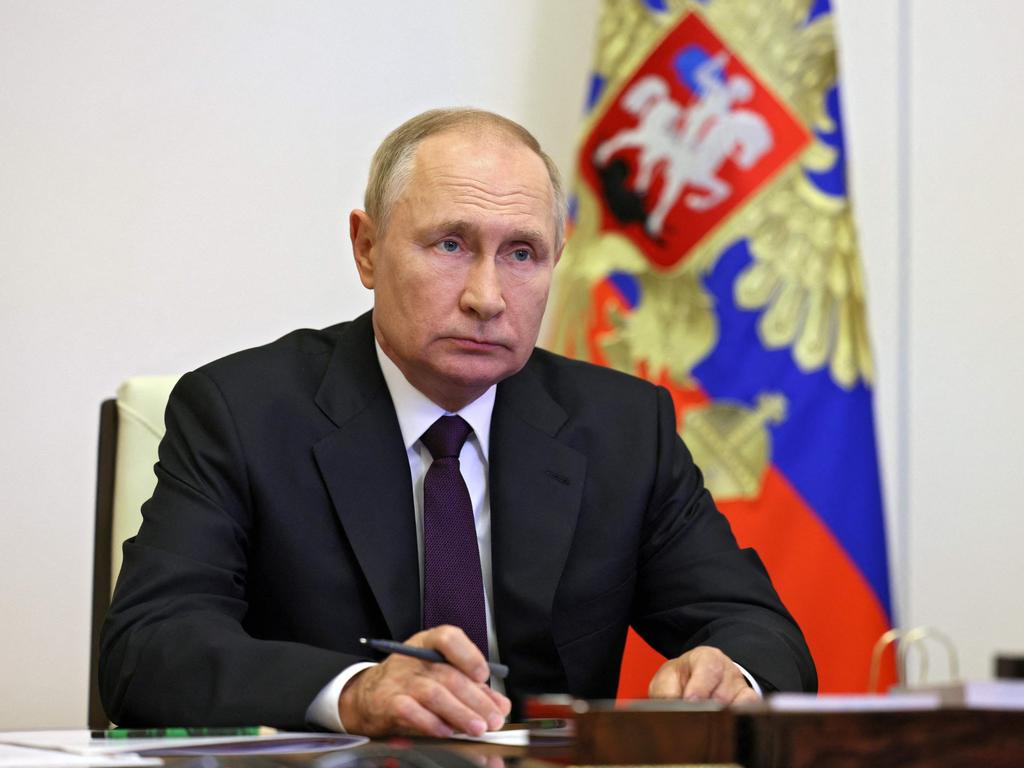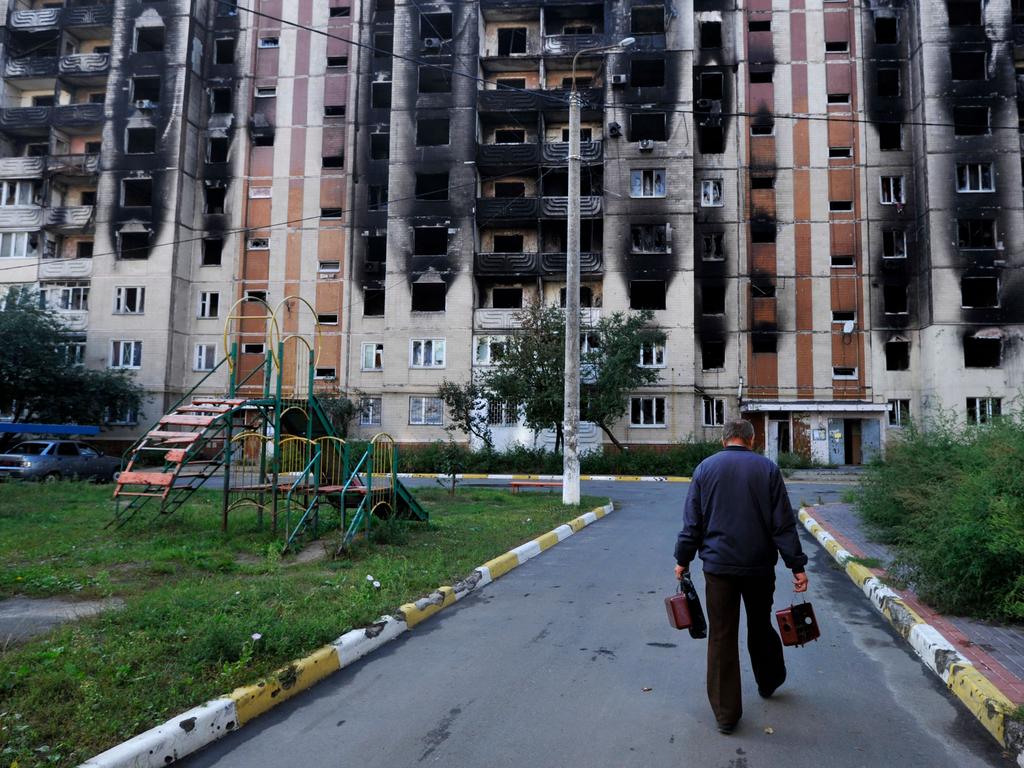Xi Jinping breaks isolation with first trip abroad to showcase his way
Vladimir Putin and Xi Jinping gather with other Asian leaders for a regional summit touted as a challenge to Western global influence.

Xi Jinping is trumpeting his credentials as a visionary leader with answers to the world’s most pressing security and economic problems, during what Beijing is presenting as a triumphant return to the international stage.
The Chinese leader on Wednesday ended his almost three-year stay behind China’s strict “Covid zero” borders with a trip to neighbouring Kazakhstan, the Central Asian state where he unveiled his signature Belt and Road Initiative in 2013.
In an address to the Kazakh people, Mr Xi championed his sprawling infrastructure project, which has been viewed with increased scepticism in much of the world as his reign has continued.
“The Belt and Road Initiative has become a platform for international co-operation that is open, inclusive, mutually beneficial and promotes win-win co-operation and a global public good widely welcomed by the international community,” Mr Xi said, in an address published in the state-controlled newspaper Kazakhstanskaya Pravda.
Following his meeting with Kazakh President Kassym-Jomart Tokayev in Nur-Sultan, Mr Xi travels to the Uzbek city of Samarkand, which on Thursday will host the Shanghai Co-operation Organisation.

On the sidelines of that China-backed security grouping, Mr Xi will meet with his “no limits” partner Vladimir Putin for their first in-person conversation since the Russian President invaded Ukraine days after visiting Beijing.
The Kremlin said the two leaders would discuss Ukraine and Taiwan, and that the encounter would hold “special significance” given the geopolitical situation.
Beijing’s propaganda machine has barely mentioned the Ukraine war in its coverage of the Central Asian trip, which comes a month before Mr Xi will be given an unprecedented third five-year term as China’s leader.
Xi and Putin will be joined by the leaders of India, Pakistan, Turkey, Iran and several other countries for the meeting of the SCO in the Uzbek city on Thursday and Friday.
The main summit day will be Friday, but it is a meeting of the Russian and Chinese leaders on Thursday that will be the most closely watched.
For Putin, the summit is a chance to show that Russia cannot be isolated internationally, at a time when Moscow’s forces are facing major battlefield setbacks in Ukraine.
For Xi it is an opportunity to shore up his credentials as a global statesman ahead of a pivotal congress of the ruling Communist Party in October.
And for both leaders, the summit will be a chance to thumb their noses at the West, especially the United States, which has led the charge in imposing sanctions on Russia over Ukraine and angered Beijing with recent shows of support for Taiwan
In his Kazakh address, Mr Xi championed his Global Security Initiative, a vague, Beijing-authored formulation that Moscow has backed and which is animated by an opposition to the US-anchored alliance system. He first proposed it in late April, two months after Mr Putin’s Ukraine invasion on February 24.
“Guided by the Global Security Initiative, we should act on the concept of common, comprehensive, co-operative and sustainable security … We should resolutely oppose interference by external forces and work together for lasting peace and long-term stability of our region,” Mr Xi said.
In a scene-setting address before the meeting, his most senior foreign policy adviser Yang Jiechi said China and Russia were trying to take the global order “in a more just and reasonable direction”.

While he did not directly mention the Ukraine war, Beijing’s top diplomat said “both sides firmly support each other on issues relating to their core interests”.
In a further signal of the strengthening pact, Moscow on Tuesday announced its Deputy Foreign Minister Igor Morgulov would be Russia’s next Ambassador to China.
“The appointment signals that Russia highly values the strategic relationship with China amid an intensifying international situation and that Russia is indeed moving eastward rather than just looking eastward, given the West‘s sanctions and suppression,” Chinese party state media reported on Wednesday.
Ukraine’s President Volodymyr Zelensky has repeatedly called for Beijing to use its influence to call for Moscow to end its war, however Mr Xi has declined Mr Zelensky’s requests to talk.
Joseph Cheng, an expert on China’s foreign policy, said the two leaders would discuss Russia’s recent retreat from a Ukrainian counter-attack.
Dr Cheng, who was a professor at the City University of Hong Kong before he left the former British colony after the imposition of the National Security Law, said Mr Putin and Mr Xi would want to co-ordinate on what sort of support China was willing to offer at this stage.
The effectiveness of Ukraine’s defence has surprised many in Beijing, as it has in capitals around the world.
But Dr Cheng said Beijing would still assess that Mr Putin’s war had been useful for preoccupying the US-alliance network’s attention on a non-Chinese threat. “It also means that the Sino-Russia relationship will be strengthened. Russia will be more dependent on China and more willing to sell its resources to China,” he told The Australian.

Over the past few decades, China has become the dominant investor and trade partner in Central Asia, giving it huge influence and at times creating tensions with Russia, the other major power in the region.
Raffaello Pantucci, an expert on China in Central Asia, said that while those regional disputes were real, neither Moscow nor Beijing would let them get in the way of higher-order priorities.
“For both the Russians and the Chinese, this region is far less important than their geostrategic alignment against the West,” said Mr Pantucci, author of a new book Sinostan: China’s Inadvertent Empire.
With AFP








To join the conversation, please log in. Don't have an account? Register
Join the conversation, you are commenting as Logout